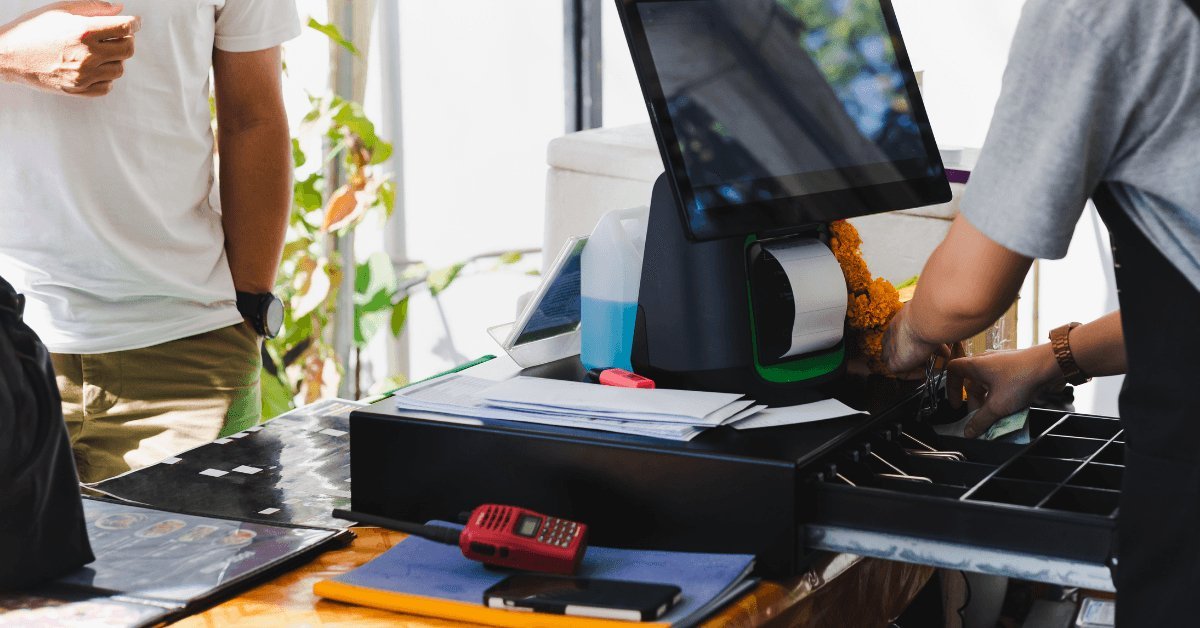Improving Business Operations with Money Counters and Services
In the fast-paced world of business, efficiency and accuracy are paramount. This is especially true when it comes to handling cash, where even minor errors can lead to significant financial discrepancies. This blog delves into the crucial role that money counters and related services play in enhancing business operations. By leveraging advanced cash handling technologies, businesses can streamline their processes, improve security, and ultimately boost their bottom line.
The Need for Efficient Cash Handling
Handling cash is an integral part of many businesses, from retail stores to large financial institutions. However, traditional methods of cash handling, such as manual counting and reconciliation, are prone to errors and inefficiencies. These errors can result in financial losses and time-consuming audits. Additionally, manual processes often require extensive labour, diverting employees from more productive tasks.
Efficient cash handling is essential for maintaining accurate financial records and ensuring smooth operations. By implementing advanced cash equipment and accessories, businesses can mitigate the risks associated with manual cash handling. Automated systems, such as note counters and coin counters, provide a reliable and efficient solution to these challenges, enhancing both accuracy and productivity.
Types of Money Counters
Money counters come in various types, each designed to meet specific business needs. Note counters are perhaps the most common, designed to quickly and accurately count large volumes of banknotes. These machines often come equipped with features such as counterfeit detection and denomination sorting, making them invaluable for businesses that handle significant amounts of cash.
Coin counters, on the other hand, are specifically designed to handle coins. These machines can sort and count coins of different denominations, significantly reducing the time and effort required for manual counting. Both note and coin counters are available in a range of models, from basic units suitable for small businesses to advanced machines capable of handling large volumes of cash quickly and accurately.
In addition to note and coin counters, businesses can also benefit from specialised cash equipment and accessories. For example, money drawers provide a secure and organised way to store cash, while counterfeit detectors help businesses identify and reject counterfeit currency, further enhancing security and reducing the risk of financial loss.
Benefits of Using Money Counters
The use of money counters offers numerous benefits to businesses. One of the most significant advantages is improved accuracy. Automated money counters are designed to count cash with a high degree of precision, eliminating the errors that are common with manual counting. This accuracy is crucial for maintaining accurate financial records and avoiding discrepancies that can lead to costly audits and financial losses.
In addition to accuracy, money counting machines also offer significant time savings. Manual counting is a time-consuming process that can take employees away from other important tasks. By automating the cash counting process, businesses can free up valuable time for employees to focus on more productive activities. This increased efficiency can lead to improved employee productivity and overall business performance.
Moreover, money counter machines can enhance the overall customer experience. In retail environments, for example, quick and accurate cash handling can reduce waiting times at the checkout, leading to higher customer satisfaction. By investing in advanced cash handling technology, businesses can create a more efficient and customer-friendly operation.
Improving Security with Money Counters
Security is a major concern for any business that handles cash. The risk of theft and fraud is ever-present, and even a small security breach can result in significant financial losses. Money counters can play a crucial role in enhancing security by reducing the risk of both internal and external theft.
One of the key security features of modern money counters is counterfeit detection. These machines are equipped with advanced sensors and algorithms that can identify counterfeit banknotes and coins, helping businesses avoid accepting fake currency. This not only protects the business from financial loss but also helps maintain the integrity of the local currency.
In addition to counterfeit detection, note counters also provide secure cash handling by reducing the need for manual intervention. By automating the counting process, businesses can minimise the risk of human error and unauthorised access to cash. This is particularly important in high-traffic environments where multiple employees may handle cash throughout the day. With money counters (note & coin counters), businesses can ensure that cash is counted accurately and securely, reducing the risk of theft and fraud.
Integration with Business Systems
For businesses to fully leverage the benefits of money counters, it is essential to integrate these machines with existing business systems. Seamless integration allows for real-time data exchange between the money counters and other financial systems, such as point-of-sale (POS) terminals and accounting software. This integration not only streamlines the cash handling process but also enhances reporting and auditing capabilities.
By integrating money counters with POS equipment, businesses can automate the reconciliation process, reducing the time and effort required for manual reconciliation. This integration ensures that cash transactions are accurately recorded and reported, providing businesses with up-to-date financial information. Additionally, integrated systems can generate detailed reports on cash handling activities, helping businesses identify trends and areas for improvement.
Integration with accounting software also simplifies the auditing process. Automated systems can provide a clear audit trail, making it easier for businesses to track cash transactions and identify discrepancies. This not only reduces the risk of errors but also enhances compliance with financial regulations. By investing in integrated money counters, businesses can achieve a higher level of operational efficiency and financial accuracy.
Cost Savings and ROI
One of the most compelling reasons for businesses to invest in money counters is the potential for cost savings and a positive return on investment (ROI). While the initial cost of purchasing money counters and related equipment may seem significant, the long-term benefits often outweigh the upfront expenses.
Money counters can significantly reduce labour costs by automating the cash counting process. This reduction in manual labour not only frees up employees for more productive tasks but also reduces the likelihood of errors that can lead to financial losses. Additionally, automated systems can process cash much faster than manual methods, further enhancing efficiency and productivity.
The cost savings from reduced labour and improved accuracy can translate into a positive ROI for businesses. By investing in money counters, businesses can achieve long-term financial benefits, including increased profitability and improved operational efficiency. Moreover, the enhanced security provided by money counters can help businesses avoid costly losses from theft and fraud, further contributing to a positive ROI.
Selecting the Right Money Counter for Your Business
Choosing the right money counter for your business is crucial to maximising the benefits of this technology. There are several factors to consider when selecting a money counter, including the volume of cash your business handles, the types of currency you need to count, and the specific features and functionalities required.
For businesses that handle large volumes of cash, high-capacity note counters are essential. These machines can process thousands of banknotes per minute, ensuring quick and accurate counting. For businesses that deal with coins, dedicated coin counters are a must. These machines can sort and count coins of different denominations, making them ideal for businesses such as retail stores and vending machine operators.
In addition to capacity, businesses should also consider the security features of money counters. Counterfeit detectors are essential for businesses that want to protect themselves from the risk of accepting fake currency. Other important features to consider include ease of use, maintenance requirements, and compatibility with existing business systems. By carefully evaluating these factors, businesses can select the money counter that best meets their needs and maximises the benefits of this technology.
Maintenance and Support Services
To ensure the long-term reliability and performance of money counters, regular maintenance is essential. Like any piece of equipment, money counters require periodic servicing to keep them operating at peak efficiency. Regular maintenance can help prevent breakdowns and extend the lifespan of the machines, ensuring that businesses get the most value from their investment.
Many suppliers offer money-counting machine rental for rental options that include maintenance and support services - book a money counter service here. This can be a cost-effective solution for businesses that want to avoid the upfront cost of purchase. With a rental agreement, businesses can access the latest technology and benefit from regular maintenance and support services, ensuring that their money counters are always in top condition.
Money Counter servicing and maintenance are also crucial for addressing any issues that may arise with counting. Many suppliers offer technical support and repair services to help businesses resolve any problems quickly and minimise downtime. By choosing a supplier that offers comprehensive support services, businesses can ensure that their money counters remain reliable and effective over the long term.
Training Employees on Money Counter Usage
Proper training is essential for maximising the benefits of money counters. Employees need to be familiar with the operation and maintenance of these machines to ensure accurate and efficient cash handling. Training programmes should cover the basic functions of money counters, as well as more advanced features such as counterfeit detection and integration with business systems.
Training can help employees become more confident and efficient in their use of money counters. This increased confidence can lead to improved accuracy and productivity, as employees are able to quickly and accurately count cash without the risk of errors. Additionally, training can help employees identify and troubleshoot common issues, reducing the need for external support and minimising downtime.
An effective training programme should include both theoretical instruction and practical hands-on experience. Employees should have the opportunity to practice using money counters in a controlled environment, allowing them to become familiar with the machines and their functions. By investing in comprehensive training, businesses can ensure that their employees are well-equipped to use money counters effectively and efficiently.
In conclusion, money counters and related services play a vital role in improving business operations. By enhancing accuracy, efficiency, and security in cash handling, these advanced technologies can help businesses achieve significant cost savings and a positive return on investment. From selecting the right money counter to ensuring proper maintenance and training, businesses can maximise the benefits of this technology and create a more efficient and productive operation.


